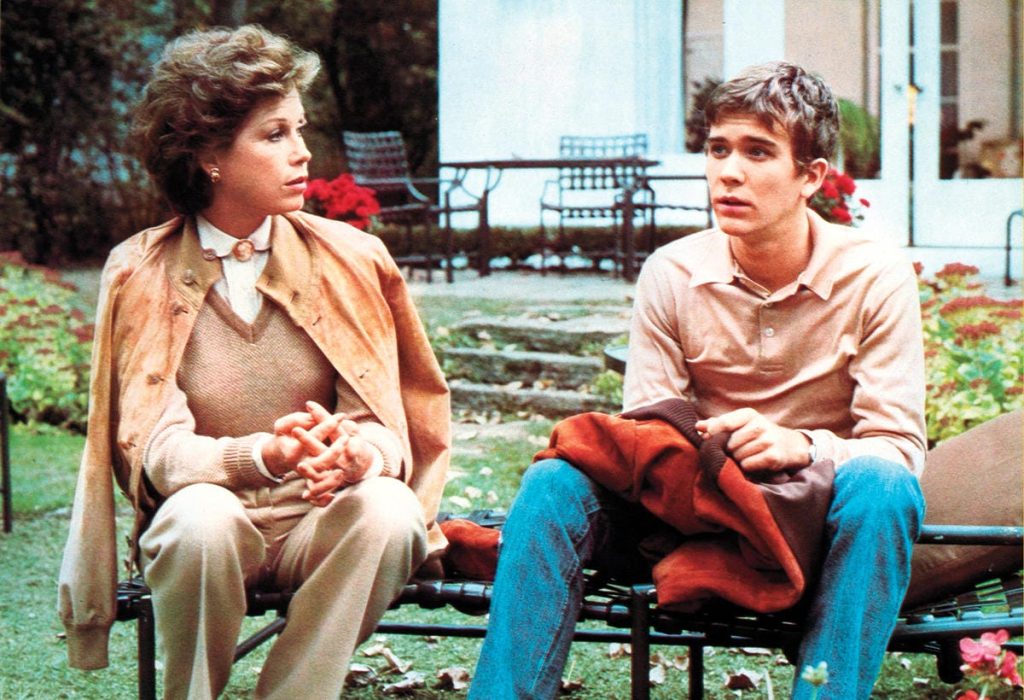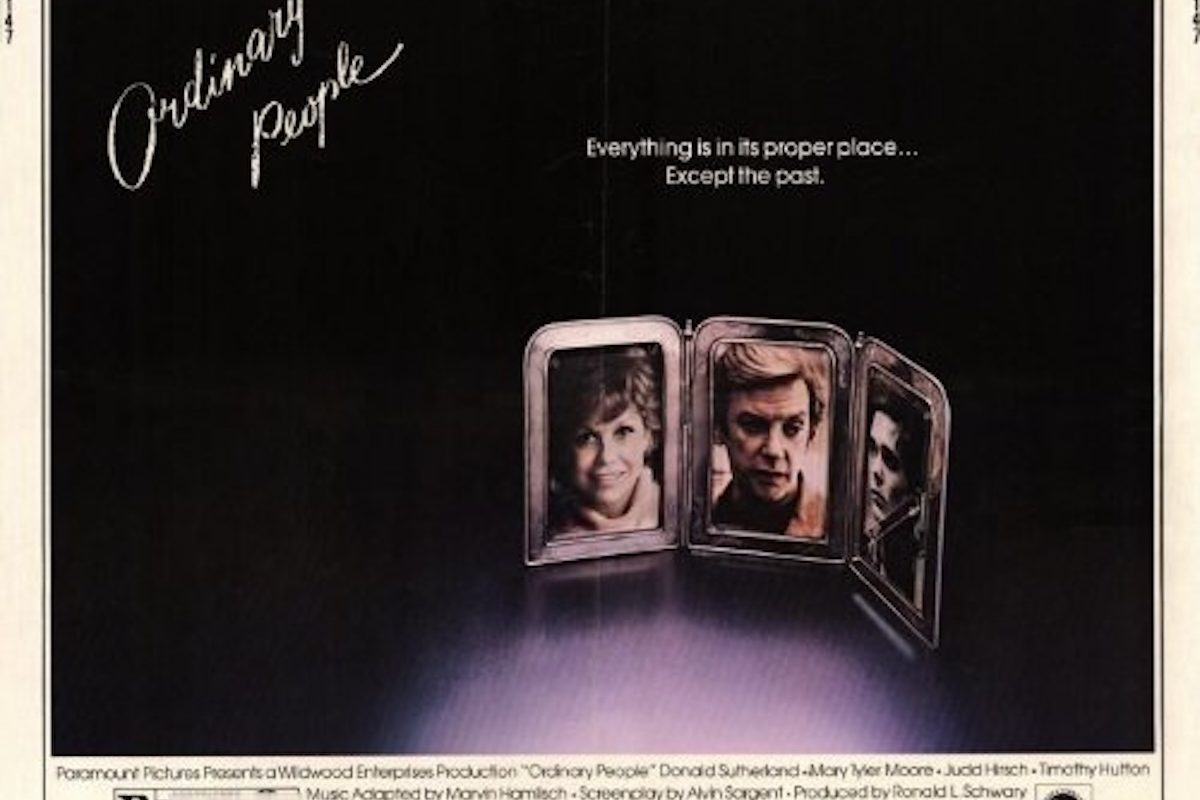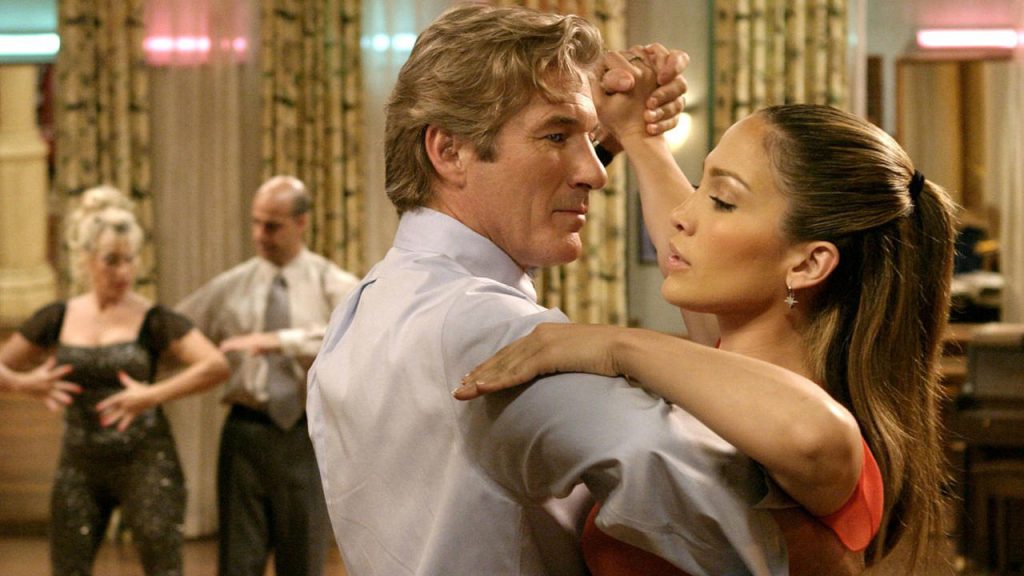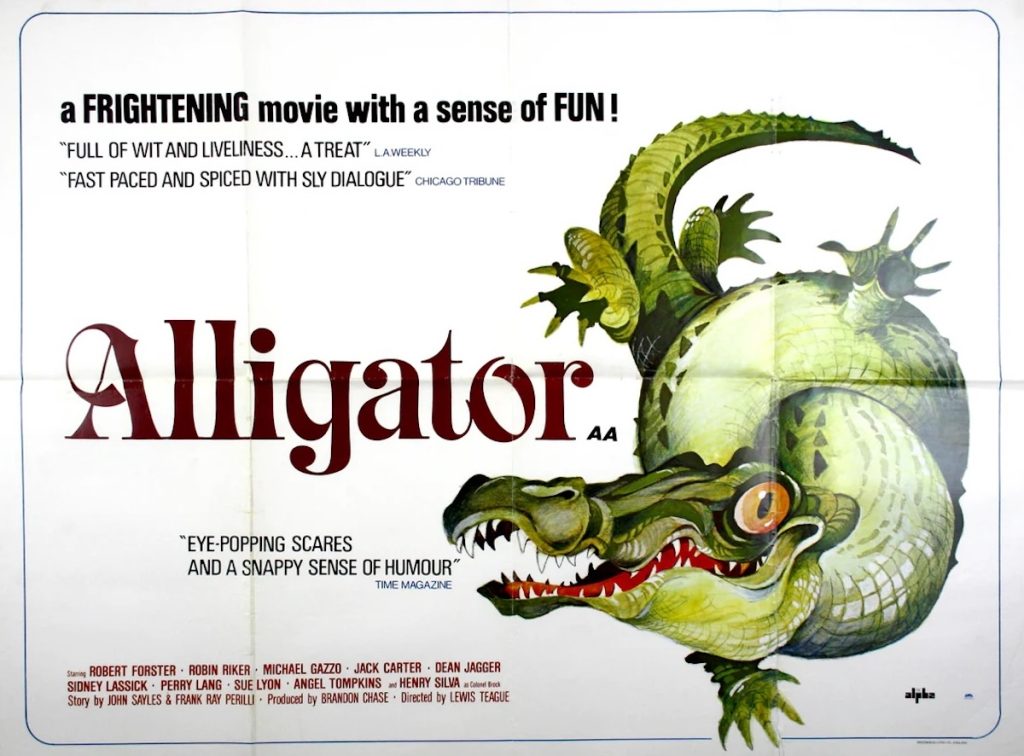“You know you’re in for it when you see the solemn white titles against a black background,” begins Pauline Kael’s blistering pan of Robert Redford’s Ordinary People. It’s one of the New Yorker critic’s funniest reviews, having a grand old time skewering the starchy self-seriousness Pauline perceived as the worst sin a filmmaker could possibly commit. The Sundance Kid’s 1980 directorial debut is indeed a very a serious film — we can tell by its deployment of Pachelbel’s “Canon in D,” a piece of music the picture popularized into a classical cliché – made by a man who spent his career hell bent on proving that he was more than just a pretty face. Ordinary People won four Academy Awards and grossed what would be the equivalent of $350 million at today’s box office. That’s an unthinkable number now for a film that’s just people talking about their feelings.
Or more accurately, people not talking about their feelings. Based on a novel by Judith Guest, Ordinary People is a film about WASP repression – it’s probably the film about WASP repression – introducing us to the Jarretts, a perfectly manicured family with a perfectly manicured lawn in Chicago’s tony Lake Shore suburbs. They look like they have it all. Patriarch Calvin (Donald Sutherland) is a tax attorney at the most prestigious firm in the city while mom Beth (Mary Tyler Moore) is a country club staple who never seems to have a hair out of place. Their house is lit by the legendary cinematographer John Bailey in the burnished, stately hues you might find in a museum. Handsome son Conrad (Timothy Hutton) is a swim team star at a fancy private school, and he’s fresh out of a mental hospital after trying to kill himself.
The title is an ironic punchline, because we come to see during these 124 minutes that the Jarretts, despite all their wealth and privilege, are just as sad and screwed up as the rest of us. Maybe more so. Beneath these pristine surfaces roil unruly passions and resentments, tamped down and suffocated in the name of keeping up appearances. Their eldest son Buck drowned in a boating accident on Lake Michigan not too long ago. Conrad’s suffering from a crippling combination of survivor’s guilt and PTSD, while his mother’s solution is to simply not talk about it. That’s her solution for everything.
Conrad does eventually learn how to talk about it, thanks to a wonderfully gruff and pushy shrink played by Judd Hirsch. Watching Ordinary People today requires a certain amount of historical imagination, recalling a time when mental health care was far more stigmatized and a scene like Calvin telling a dinner party acquaintance that their son is seeing a psychiatrist could conceivably set Beth off on a deeply embarrassed tear. The mensch-y therapy scenes have become the template for so many movies since, a friend joked that since Robin Williams didn’t thank Hirsch in his Oscar acceptance speech for Good Will Hunting, he’s just going to assume that he wrote him a very nice note.

So much of the picture has been codified into pop culture – whether we’re talking about the stiff family dinners where nobody speaks or that bloody Pachelbel music – it can be difficult to imagine how startling the movie must have seemed at the time. How perverse that the impossibly handsome and charismatic Redford would choose to stay behind the camera for his debut, focusing his attention on the kind of family drama that was more often consigned to television. And speaking of TV, here’s the medium’s original beloved housewife Mary Tyler Moore, who can turn the world on with her smile, playing one of the least maternal mothers in movies with brittle, shattering intensity.
There’s perhaps something to the criticisms that the film is a little unfair to Beth. Sutherland’s beleaguered patriarch is so gentle and sad, there’s a softness to him even at his most formal. The actor’s eyes ache with the pain of a man who dearly loves a wife and son he cannot comprehend. We can see where Conrad gets his vulnerability. Hutton is extraordinary as the son desperate to be loved by a mother who doesn’t know how. A scene where he and Moore try to make small-talk about swimming is almost unbearable to watch. (One wonders if she might have been more evenly matched with Redford’s original choice for Cavlin, the much gruffer Gene Hackman, who famously turned down the role because he wanted more money.)
People seem surprised when movie stars turn out to be great directors. I’m more surprised when they’re not, as they’ve been on more sets than most directors and experienced so many different approaches to the work. Redford was one of our best, coaxing career-topping performances from his cast. He’s another guy who looked like he had it all – since his death everyone keeps re-telling that story about how Mike Nichols wouldn’t cast him in The Graduate because the actor couldn’t imagine what it was like to strike out with a girl. Yet the best Redford pictures are about cracks in that facade, about golden boys with feet of clay and icons haunted by failures. He was a larger-than-life star who made movies about ordinary people.
“Ordinary People” is streaming on MGM+ and is available for digital rental or purchase.



